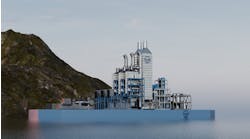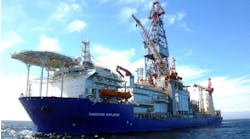Offshore staff
ASKER, Norway -- TGS and PGS plan a new 3D seismic survey this summer offshore Eastern Newfoundland.
The Cape Broyle 3D survey will comprise around 3,500 sq km (1,351 sq mi) of 3D GeoStreamer data over the Southeastern Newfoundland region.
PGS will perform pre-processing of the initial GeoStreamer signal with TGS managing data processing. Final data will be issued to clients next year, ahead of the 2019 licensing round under Newfoundland Labrador's Scheduled Land Tenure system.
The two companies will also shortly start a 2D seismic campaign off Eastern Canada that will comprise roughly 22,000 km (13,670 mi) of 2D GeoStreamer data, making this their seventh consecutive year of 2D acquisition in the area.
Following completion of these surveys, their jointly-owned library will feature over 175,000 km (108,740 mi) of 2D GeoStreamer and 14,750 sq km (5,695 sq mi) of 3D GeoStreamer data.
This, combined with their well log library and multi-client interpretation products, should help interested parties improve play, trend, and prospect delineation.
Elsewhere, TGS, PGS and GeoPartners continue acquisition of their expanded 22,500-km (13,981-mi) long-offset 2D North-WestAfrican Atlantic Margin (NWAAM 2017) broadband seismic survey.
The program, across the Mauritania-Senegal-Gambia-Bissau-Conakry (MSGBC) basin, is designed to infill, extend and complement the NWAAM 2012 2D survey which assisted the recent commercial discoveries in the offshore MSGBC basin.
TGS also has an agreement with UK-based geophysical contractor Geoex to acquire the Norwegian and Barbados surveys performed by Multi-Client Geophysical ASA.
In the near-term,TGS expects oil companies to remain cautious on spending and although there are signs of increased exploration activity, the value of spending will likely be lower this year, the company predicts.
Discovery of new hydrocarbon resources has dropped to historically low levels over the past couple of years, it adds, pushing reserve replacement ratios down to unsustainably low levels.
In time, it points out, oil companies will be obliged to step up exploration to grow their production in order to satisfy longer-term oildemand.
5/10/2017


